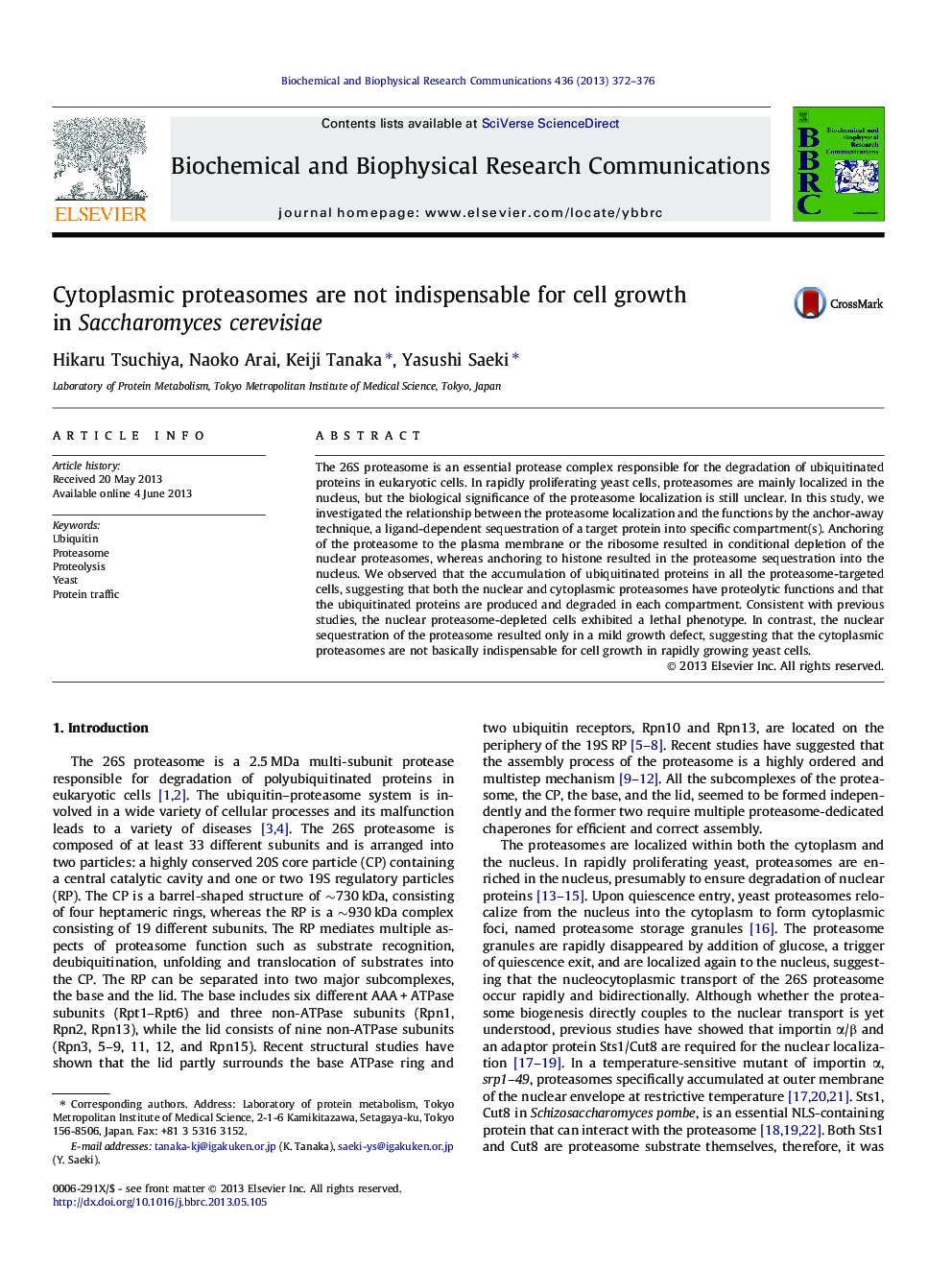| Article ID | Journal | Published Year | Pages | File Type |
|---|---|---|---|---|
| 10758725 | Biochemical and Biophysical Research Communications | 2013 | 5 Pages |
Abstract
The 26S proteasome is an essential protease complex responsible for the degradation of ubiquitinated proteins in eukaryotic cells. In rapidly proliferating yeast cells, proteasomes are mainly localized in the nucleus, but the biological significance of the proteasome localization is still unclear. In this study, we investigated the relationship between the proteasome localization and the functions by the anchor-away technique, a ligand-dependent sequestration of a target protein into specific compartment(s). Anchoring of the proteasome to the plasma membrane or the ribosome resulted in conditional depletion of the nuclear proteasomes, whereas anchoring to histone resulted in the proteasome sequestration into the nucleus. We observed that the accumulation of ubiquitinated proteins in all the proteasome-targeted cells, suggesting that both the nuclear and cytoplasmic proteasomes have proteolytic functions and that the ubiquitinated proteins are produced and degraded in each compartment. Consistent with previous studies, the nuclear proteasome-depleted cells exhibited a lethal phenotype. In contrast, the nuclear sequestration of the proteasome resulted only in a mild growth defect, suggesting that the cytoplasmic proteasomes are not basically indispensable for cell growth in rapidly growing yeast cells.
Related Topics
Life Sciences
Biochemistry, Genetics and Molecular Biology
Biochemistry
Authors
Hikaru Tsuchiya, Naoko Arai, Keiji Tanaka, Yasushi Saeki,
